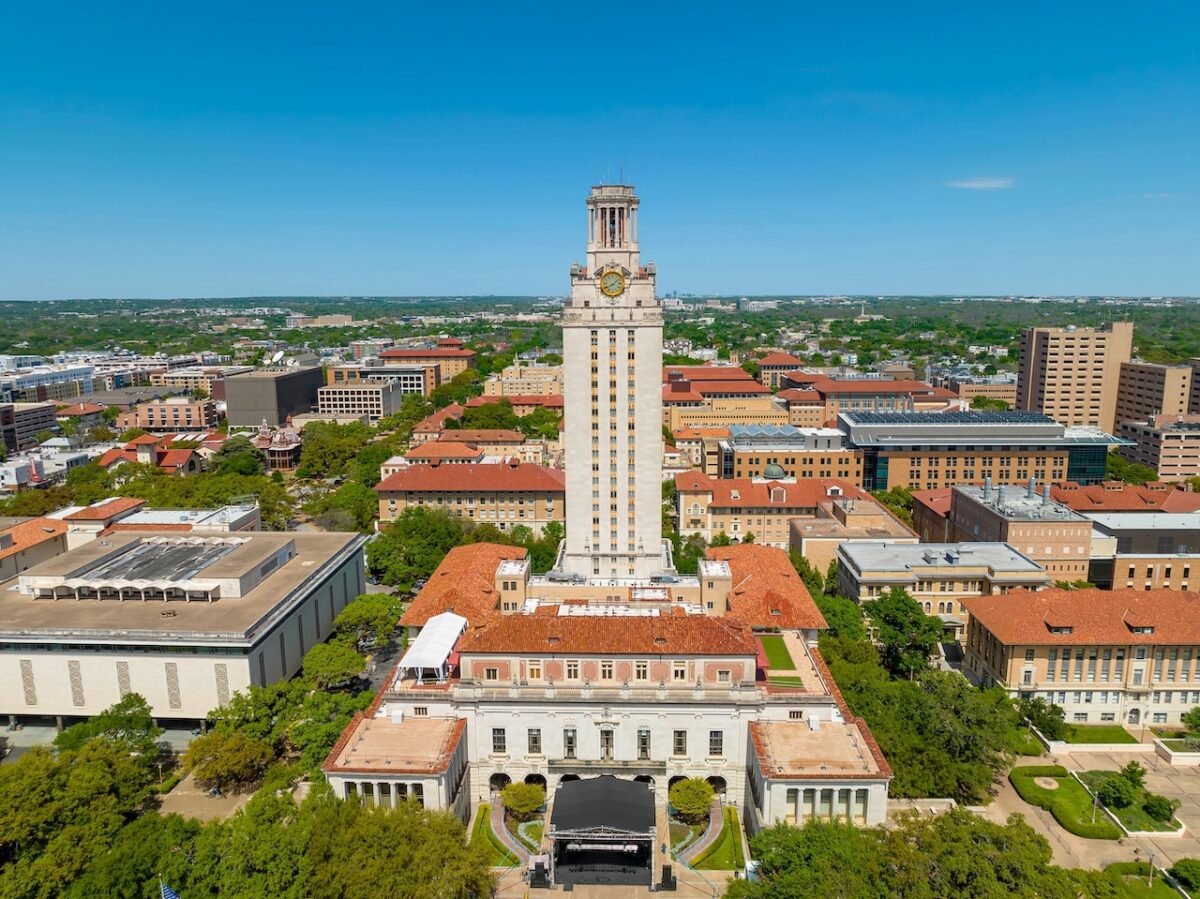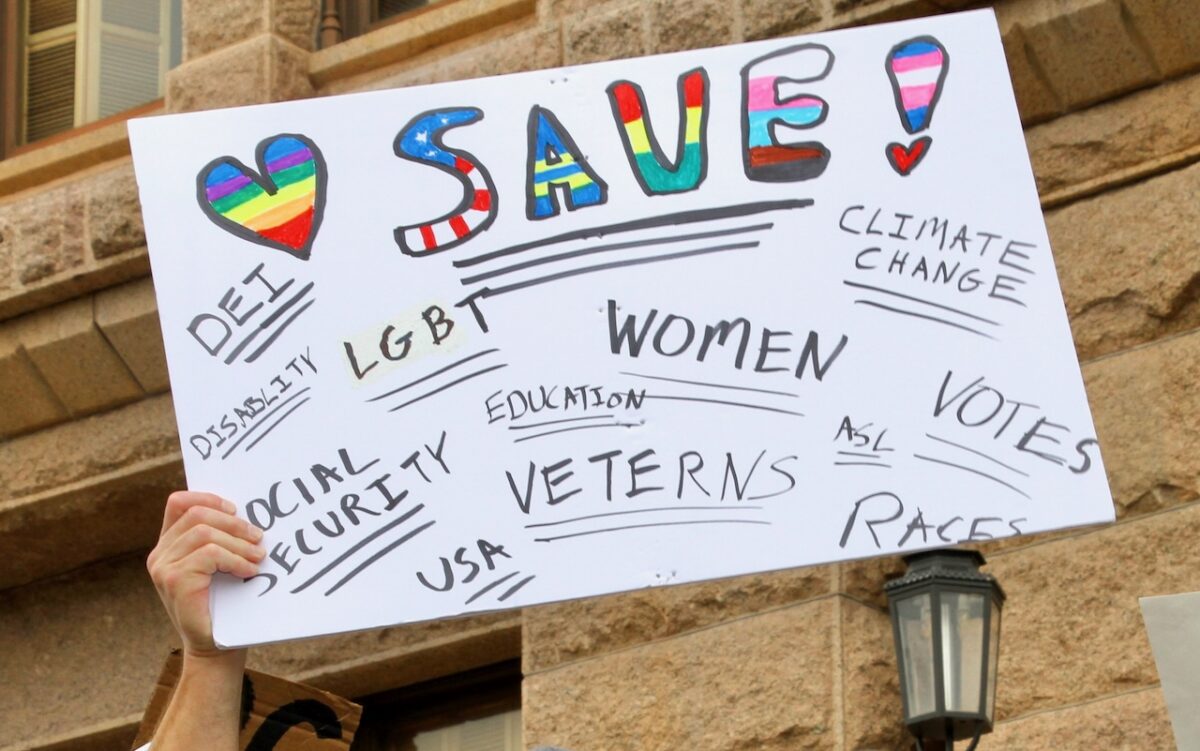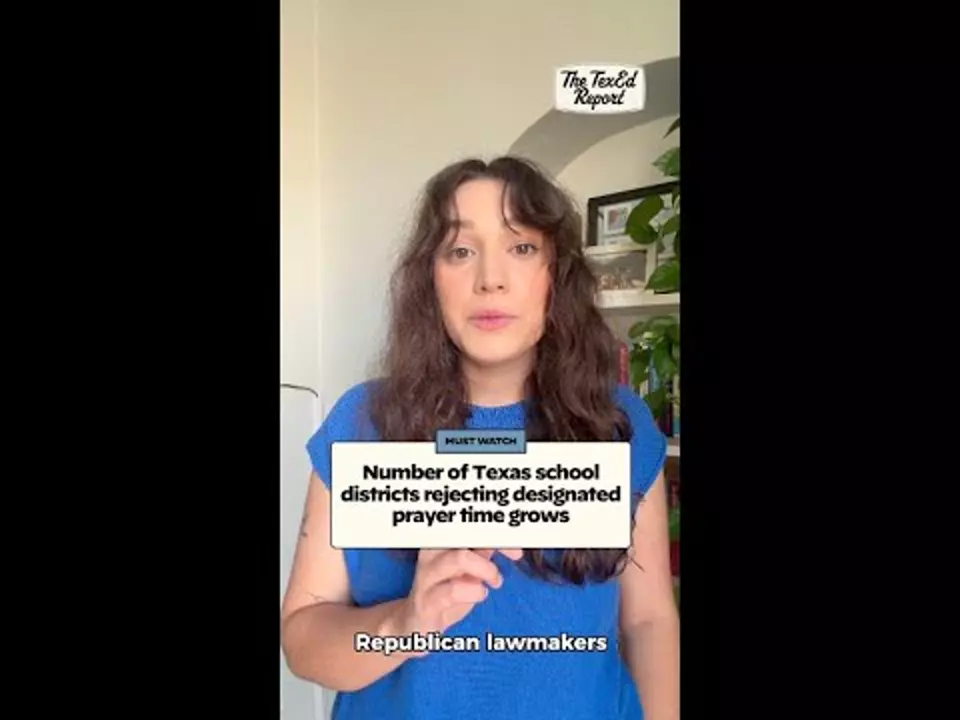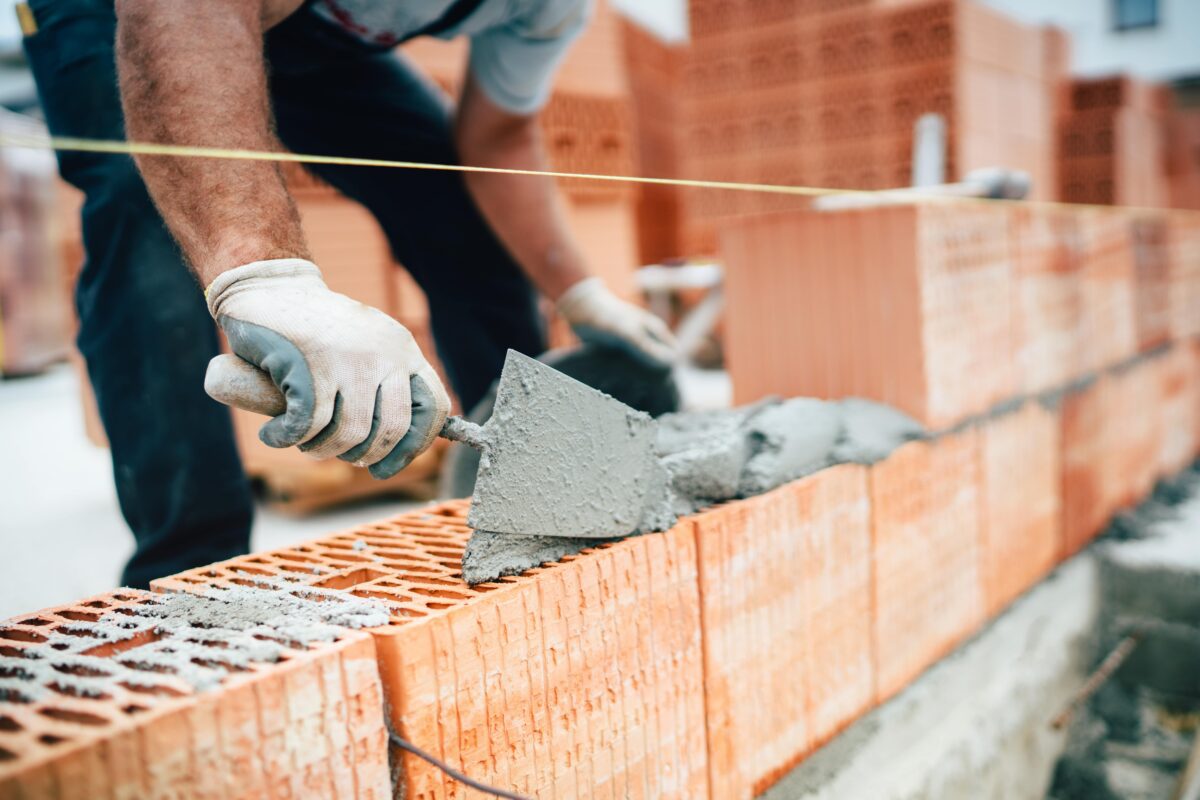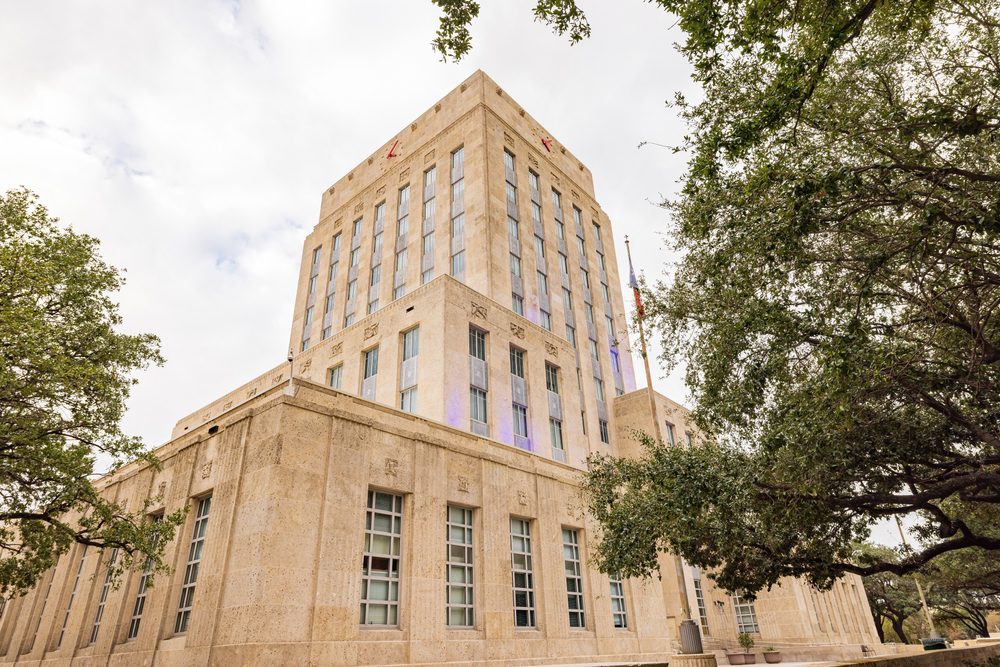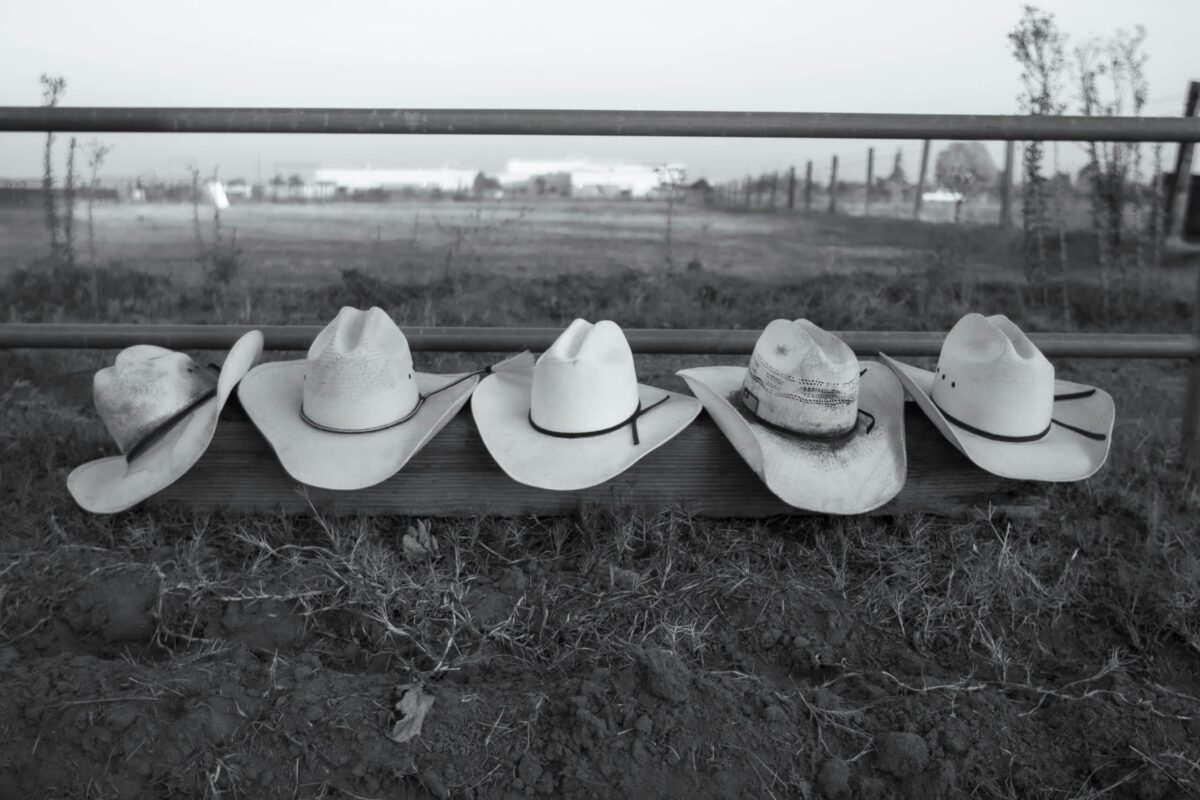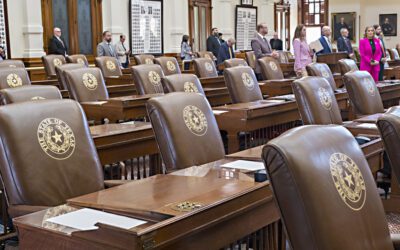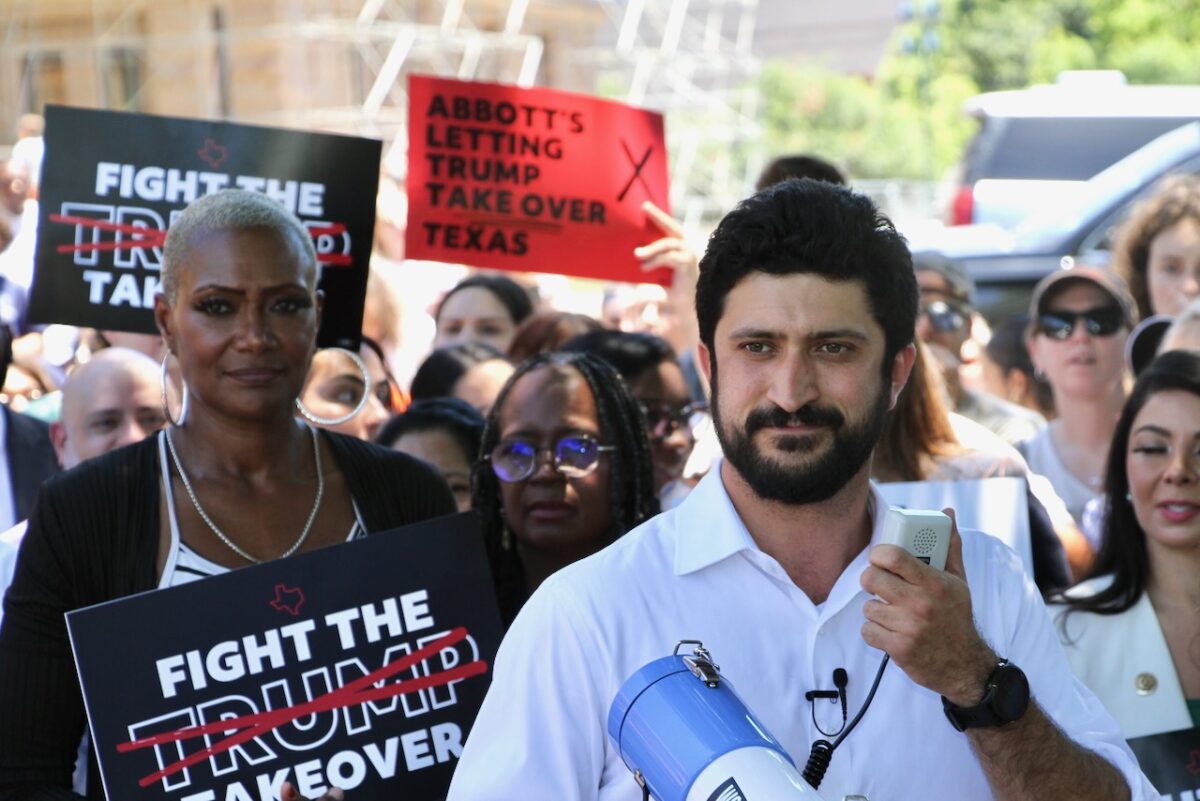
US Rep. Greg Casar (D-Austin) sharply criticized Republican efforts to redraw the state’s congressional districts during a rally on Thursday in Austin. (Photo by Matt Hennie)
The new maps redraw US House boundaries in Austin, Dallas-Fort Worth, Houston, and South Texas as Republicans try to gerrymander the state’s congressional maps ahead of the 2026 midterm elections.
Thousands of people spoke out against Republican plans to gerrymander their way to winning more US House seats in Texas.
Republican lawmakers didn’t listen. On Wednesday, they unveiled a draft of their proposed map of the state’s congressional districts—less than a day after finishing a series of legislative hearings on redistricting.
Gov. Greg Abbott—facing pressure from President Donald Trump—tasked lawmakers with drawing new congressional maps to try and keep Democrats from retaking control of the US House in the midterm elections in 2026. Their map drop on Wednesday targeted Democratic districts in Houston, Dallas-Fort Worth, Austin, and South Texas. Republicans control 25 of the state’s 38 seats in the US House. They want the new maps to give them five more.
Republican lawmakers are rushing to approve the new maps during a 30-day special legislative session that opened on July 21. The Texas House Select Committee on Congressional Redistricting scheduled a hearing for Friday to vet the maps, which are included in House Bill 4 from state Rep. Todd Hunter (R-Corpus Christi).
The hearing starts at 10 a.m. and could last nearly 12 hours. Lawmakers set aside 90 minutes to discuss the maps and up to 10 hours for public testimony.
Democratic lawmakers and elected officials targeted by the new maps were outraged.
“Trump is taking a hatchet to chop up Austin and our state with the sole objective of maintaining his one-man rule,” US Rep. Lloyd Doggett (D-Austin) said in a prepared statement. “This is designed to eliminate accessibility, accountability, and a strong voice for our shared values.”
Hunter’s proposed maps create just one heavily-Democratic district in Austin, which could force Doggett and Rep. Greg Casar (D-Austin) to face each other in a primary, or one of them to run in a new GOP district based in San Antonio. Casar’s current 35th District seat runs along Interstate 35 from San Antonio to Austin.
“Donald Trump has no plan for winning the upcoming elections,” Casar said during a rally at the Texas Capitol on Thursday. “He wants to execute a plan to rig the elections before we ever get a chance to vote. Donald Trump is scared.”
In Dallas-Fort Worth, the new Republican maps target the districts of Democratic Reps. Julie Johnson and Marc Veasey.
Johnson’s current District 32—which includes parts of Dallas, Collin, and Denton counties—is a Democratic stronghold. But under the new map, her district would stretch into several rural areas dominated by Republicans, including Rockwall, Hunt, Rains, Wood, Upshure, and Camp counties.
In Fort Worth, Veasey’s District 33 would see its percentage of registered Democrats drop from 74% to 65% under the new map, which also cuts Tarrant County, Veasey’s hometown, out of the district entirely.
In Houston, the new maps redraw the district boundaries of Democratic Reps. Al Green and Sylvia Garcia. Green’s District 9 would slide eastward, taking in more Republican-leaning areas and becoming a majority Hispanic district. In Garcia’s District 29, the area would lose much of Houston’s East End and expand northward. It stays majority-Latino, but voters in traditional Democratic areas would be moved elsewhere.

State Rep. James Talarico (D-Austin) called Republican efforts to redraw the state’s congressional maps a “power grab” during a rally at the Texas Capitol on Thursday. (Photo by Matt Hennie)
‘A map crafted behind closed doors’
Hundreds of people opposed to Republicans’ effort attended a rally and redistricting hearing in Houston on Saturday. In Arlington on Monday, several hundred more spoke out about the redistricting plan during a rally and a legislative hearing. The overwhelming message delivered during the rallies and legislative hearings? Opposition to redrawing the state’s congressional maps.
“Texans deserve a congressional map that allows them the opportunity to choose their leaders, they do not deserve a map crafted behind closed doors where officials choose their constituents,” Elsie Cooke-Holmes, a Plano resident and human resources consultant, said during the legislative hearing in Arlington.
Yet there’s little that Democrats in the Texas Legislature can do to stop the maps. They have threatened to leave the state to block votes on the new maps, but it would take 51 of the House’s 62 Democrats to bring that chamber to a standstill. If Democrats leave Texas, they face $500 daily fines and other sanctions from the legislature.
After the hearing on the new maps on Friday, the Texas House Select Committee on Congressional Redistricting could approve it and send it to the full House for a vote. The state Senate, which has its own redistricting committee, could also propose new congressional boundaries. Both chambers of the legislature must approve any new maps before they are sent to Abbott for his signature. The maps then face a likely court challenge.
“If they succeed here, they are going to do it in every red state across the country before the 2026 elections,” state Rep. James Talarico (D-Austin) said during the Austin rally. “If they succeed with this power grab, they’re never going to have to fear the voters ever again.”
COURIER Texas political correspondents ShaVonne Herndon and Katie Serrano contributed to this story.
Support Our Cause
Thank you for taking the time to read our work. Before you go, we hope you'll consider supporting our values-driven journalism, which has always strived to make clear what's really at stake for Texans and our future.
Since day one, our goal here at COURIER Texas has always been to empower people across the state with fact-based news and information. We believe that when people are armed with knowledge about what's happening in their local, state, and federal governments—including who is working on their behalf and who is actively trying to block efforts aimed at improving the daily lives of Texas families—they will be inspired to become civically engaged.






